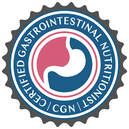|
Spaghetti bolognese is the ultimate comfort food for me. It is uncomplicated and delicious. However, if you struggle with digestive issues and can't tolerate garlic and onion (hello fructans), well then, spaghetti quickly becomes a "no go". But wait....what if you don't have to give it up? Well, then you can have the best of both worlds, no bloat and a bowl full of delicious spaghetti.
This LOW FODMAP SPAGHETTI BOLOGNESE is just that. Plus, NO complicated ingredients or online purchases necessary. My favorite pasta is hands down Jovial spaghetti, the texture and the taste is perfection! My other highly recommended staple is Organico Bello Imported Italian Passata (strained tomatoes). The sauce is smooth and creamy and only contains tomatoes and salt. It's also an excellent source of potassium which I find many of my patients are NOT getting enough of. If you want to use low FODMAP garlic infused olive oil you can, but honestly I NEVER use it. I prefer to stick with a quality extra virgin olive oil with robust flavor to really make this dish shine. If you toss your noodles in the olive oil before serving it adds even more flavor and aroma. Plus, you get all those healthy, gut friendly polyphenols to boost! I usually add a splash of red wine to my bolognese sauce, but you don't have to. Just add a little bit of balsamic vinegar instead (don't use the super sweet concentrated kind). If you don't have any issues with FODMAPs of course you can feel free to add garlic and onions to this recipe along with the dried herbs. Really all you need is 1-2 cloves of minced garlic and 1/2 chopped yellow onion. Many people think they need to go overboard with these two ingredients, but often more is not always better, AND someone who is sensitive to FODMAPs may still be able to tolerate the small amount of fructans per serving if you take it easy. Easy Low FODMAP Spaghetti Bolognese INGREDIENTS 1 package Jovial gluten-free spaghetti (or your favorite alternative) 1 tablespoon robust extra virgin olive oil (plus more to toss with your noodles) 1lb grass-fed ground beef (1 prefer 80-85% lean for bolognese because it provides additional flavor) 1 teaspoon each dried oregano, marjoram, and thyme 1 bay leaf 3/4 teaspoon sea salt Fresh ground pepper 1 jar Organico Bello Imported Italian Passata 1 tablespoon balsamic vinegar (or a splash of red wine) 1 tablespoon sugar Optional: chili flakes, fresh basil, and/or grated pecorino cheese DIRECTIONS Bring a large pot of water to a boil. Add salt and cook pasta per package instructions. Rinse and toss in extra virgin olive oil before serving if desired. Meanwhile, heat a large skillet over medium low heat. Add the olive oil and evenly cast the bottom of the pan. Add the grass-fed ground beef, and sauté for 2 minutes, breaking up the beef with a spatula. Add in the desired herbs and bay leaf, and continue to sauté until cooked through and aromatic. Add salt and fresh ground pepper. Pour in the entire jar or strained tomatoes, and stir well to combine. then add the balsamic vinegar (or splash of red wine) and sugar. Stir and allow to simmer 5-10 minutes for the flavors to blend. Adjust salt and pepper to taste and add a pinch of chili flakes if desired. Serve over pasta and top with freshly chopped basil and pecorino cheese.
0 Comments
Nettles are originally from Northern Europe but are now found all over the world. They have been used for hundreds of years as a medicinal herb for hormonal imbalances, fatigue and lethargy, forgetfulness, allergies, constipation, and detoxification support. Hildegard von Bingen, a German nun and healer who was well known during the Middle ages, spoke of nettles highly. Today, functional medicine practitioners use nettles as part of treatment plans including seasonal allergies, detoxification, blood building, and balancing hormones. Besides their medicinal background, nettles are a very nutritive plant, rich in protein, vitamin A, vitamin C, calcium, and iron. It is also a great source of polyphenols, plant compounds known to provide many health benefits, including reducing inflammation and supporting the health of our good gut bacteria. However, today I want to highlight nettles and their ability to help reduce seasonal allergies. Nature often works hand in hand. As the pollens burst into the air with the first warm spring days, nettles start to pop out along trails in the Pacific Northwest woods. Individuals struggling with seasonal allergies may find relief from the consumption or supplementation of nettles because they help inhibit the production and release of histamine from mast cells as well as their breakdown. Mast cells release histamine in response to foreign proteins, such as pollens, causing the classic symptoms of allergies including a runny nose, itchy and red eyes, and sneezing. Furthermore, nettles have been found to inhibit COX-1 and COX-2, enzymes that play key roles in the inflammation cascade. Although, clinical studies are lacking, there is one study from 1990 that found some improvement in allergy symptoms with the consumption of 600mg of freeze-dried stinging nettle powder 1-3x per day. Another more recent study in 2017, found that 150mg of stinging nettle powder taken for 1 month, significantly improved symptoms compared to standard treatment of allergic rhinitis (anti-histamines and inhaled corticosteroids). However, the placebo group also had improved symptoms post-treatment. Although at present we only have two human clinical studies, that doesn't matter. Practitioners have used nettles successfully for thousands of years. This type of experiential clinical data also counts. How do You Pick Nettles? You will see nettles along your local hiking trail during the months of spring and early summer. You only want to harvest the top 2-3 tiers of leaves. The younger the plant, the more delicate and tender the flavor. Using gloves and a small scissor, cut the nettle at the desired point. If you don't want to forage for them yourself, farmers markets will often sell these during the early Spring months. How Do You Use Nettles? For starters you can buy nettle tea, and drink that. It is easy and requires minimal preparation. It is earthy in flavor. However, if you want to use nettles in your meals, I recommend making either nettle pesto (recipe below), nettle potato soup (recipe below), nettle frittatas or quiches, or use nettles any way you would use spinach. Personally, I feel like nettle pesto is the most versatile. You can make 1-2 batches, and freeze what you will not use right away. Then you can add cubes of thawed nettle pesto to soups, sauces, egg dishes, pasta (of course), parchment baked chicken breast or fish, etc. The list goes on. How Do You Prepare Nettles? First wash all your foraged nettles in clean cool water. Then, in order to use nettles culinarily, you must heat or vigorously process them to remove the sting. Interestingly, once the hairs on the nettle are broken, the nettle no longer stings. I personally prefer blanching nettles. Blanching gives the nettles a brilliant green color and makes them easy to handle and trim. Blanched nettles can be frozen for use later. Making Your Own Nettle Pesto The nice thing about pesto is it's versatility. I suggest making two batches of this delicious pesto to freeze for year round nettle infusions. You can also add basil or other herbs to this as desired. Makes ~ 3 cups. INGREDIENTS 1 produce bag full of raw nettles (to make about 2 cups blanched and trimmed nettles) ½ cup toasted pine nuts ½ cup organic extra virgin olive oil ½ cup grated parmesan or pecorino 3-4 cloves garlic 2-3 tablespoons lemon juice Sea salt (I used ½ teaspoon) Fresh ground pepper DIRECTIONS Soak the nettles in fresh, clean water. Meanwhile, bring a large pot of salted water to a boil. Using tongs, transfer the nettles into a colander, and then transfer to the boiling water. Blanch for 1 ½ minutes. Meanwhile, make an ice bath with 1 tray of ice cubes and a bowl filled with cool clean water. Transfer the blanched nettles to the ice bath and let sit a few minutes and strain. Once the nettles are strained, squeeze the nettles by hand, to squeeze out the excess water. Transfer to a clean kitchen towel and spread them out. Using your scissors, cut the thicker stems off, leaving behind only the leaves and delicate stems. Measure out 2 cups of these blanched and trimmed nettles and transfer to a food processor along toasted pine nuts, olive oil, cheese, garlic, lemon juice, salt and pepper. Pulse until cohesive but not too smooth. Adjust salt, pepper, and lemon juice to your liking. Freeze what you don't use right away in a silicone ice cube tray or small glass mason jars. Nettle and Potato Soup
Another less work intensive recipe for nettles is simply soup! This creamy, green soup can easily be made dairy free by substituting the cream for canned full fat coconut milk. Use bone broth in place of vegetable broth to increase the protein if desired. Serves 4-6 INGREDIENTS 2 tablespoons extra virgin olive oil 2 small shallots, diced 2 cloves garlic, finely minced 3 medium sized yellow potatoes, rinsed and dice 2-3 slices bacon, cut into small pieces (or ¼ cup diced pancetta) 3-4 handfuls rinsed baby nettle leaves, base stems trimmed* 3 cups vegetable broth or bone broth 1/3 cup heavy cream (may replace with canned full fat coconut milk) 1 tablespoon honey Juice of ½ lemon Splash of apple cider vinegar (optional) Pinch of red chili flakes (optional) Sea salt and pepper to taste Garnish with fresh parsley DIRECTIONS Heat a soup pot over medium heat. Add the oil and when hot, add the shallots, garlic, diced and bacon/pancetta. Allow the shallots to turn glassy and the pancetta to turn crispy. Stir occasionally. Add the nettles to the pot sauté until wilted. Add the potatoes and pour in enough vegetable broth until the potatoes are covered. Bring the soup to a simmer for about 15 minutes, or until the potatoes are tender. Once the potatoes are tender, remove the pot from the burner, and using an immersion blender puree the soup. Return the pureed soup back onto the burner and heat on low. Next add the cream and honey. Stir well to combine. Finally, add the lemon juice and a splash of apple cider vinegar to brighten the soup. Season with chili flakes, sea salt and pepper to taste. You could even add some frozen nettle pesto if desired. Garnish with fresh parsley. Serve with buttered fresh bread and a side salad. *Note: By trimming the nettles, and leaving only the delicate stems, keeps the soup more delicate and smooth. Creamiest Alfredo Sauce This Alfredo sauce is the bomb! Everybody loves it. And guess what, it is dairy-free, egg-free, nut free, and gluten-free making it very allergen friendly. Plus, it's loaded with veggies...but your kiddos (or picky eaters) would never know. It is also naturally low histamine if you choose vegetable broth and I like to pour this sauce over pasta, roasted veggies, or steamed potatoes. It's so delicious, I am sure you will find other ways to utilize this sauce. Serves 6 Total Time: Less than 30 minutes INGREDIENTS 1 medium head cauliflower 1 medium leek 4 cloves garlic 1 can full fat coconut milk 1/4 cup nutritional yeast Juice of one lemon 1 teaspoon sea salt Fresh ground pepper 1/4 teaspoon red chili flakes (optional) 1/4 cup (or more) veggie broth - can substitute with water or bone broth
When the 15 minutes are done, use a fork to test the doneness of the cauliflower. It should be fork tender. Turn off heat, remove lid, and allow to cool a few minutes until it is cool enough to handle. Transfer the steamed veggies* to a high powered blender (I used a Blend Tech).
To the veggies add the canned coconut milk, nutritional yeast, juice of 1 lemon, salt, and plenty of fresh ground pepper. Add the optional chili flakes for a little spice. Blend on high until smooth. Add the veggie broth or additional liquid, and blend on high for 1-2 minutes until the mixture is silky smooth. Now it's ready to be served!! Keep leftovers in a glass container in the fridge. Reheat over the stove top or in microwave. You may need to add another splash of broth or water to thin to desired consistency. *Note: I usually discard the main portion of the cauliflower stem. Nutrition Facts (per serving): 170kcal, 13g fat, 11g carbs, 4g fiber, 5g protein. |
RecipesI hope you enjoy my creative, flavorful, and nutrient dense approach to whole foods cooking. All recipes are gluten free. Archives
December 2022
Categories
All
|
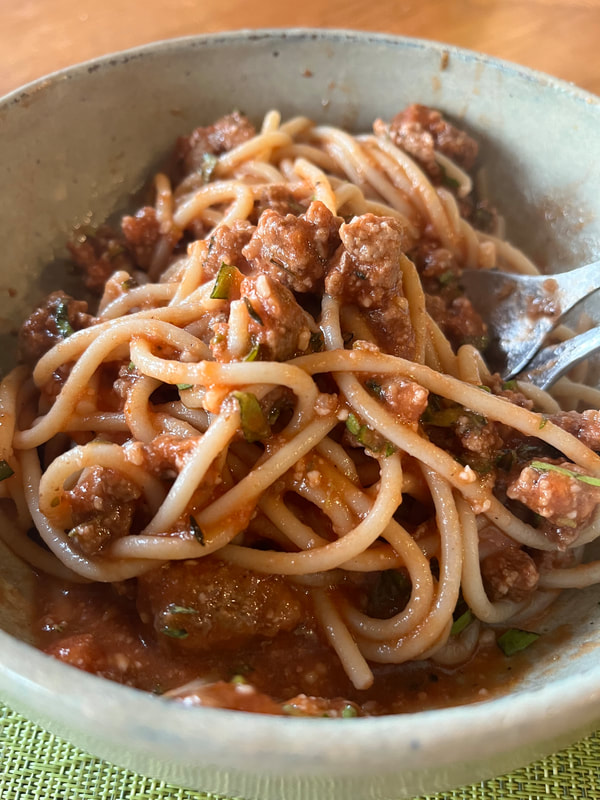
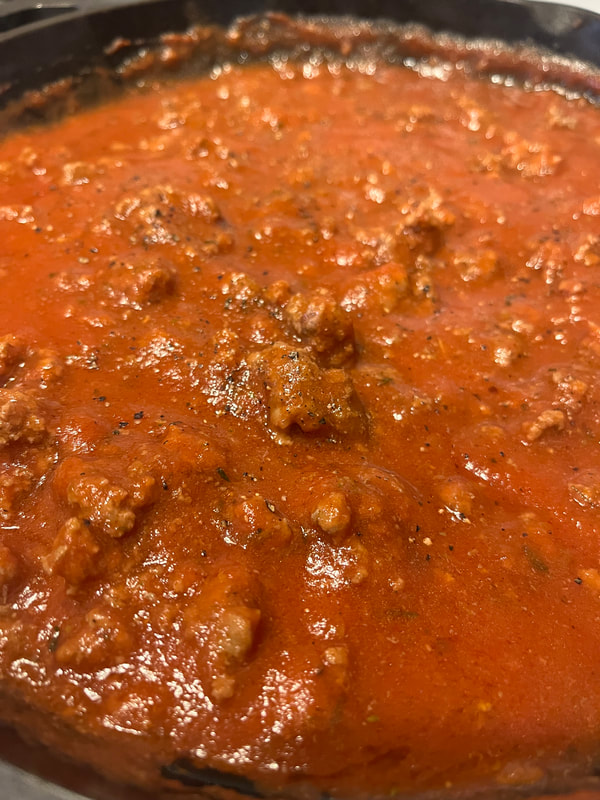
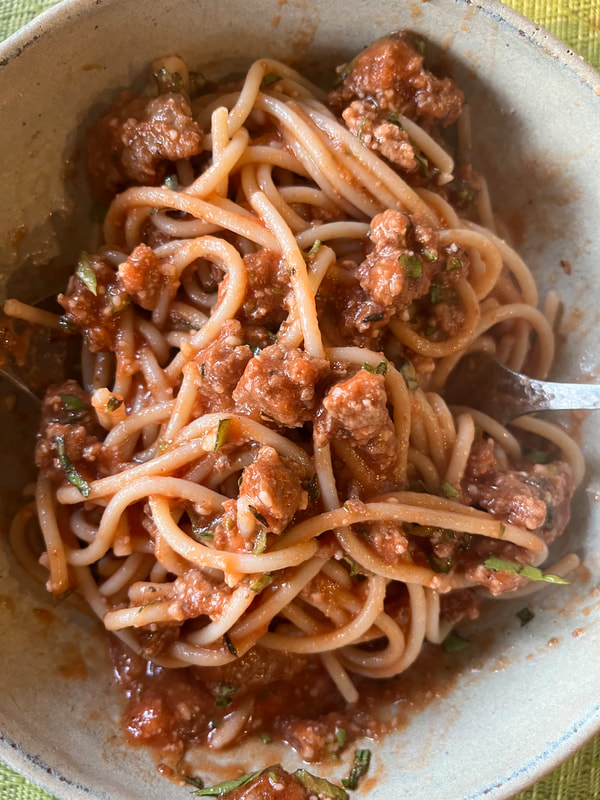
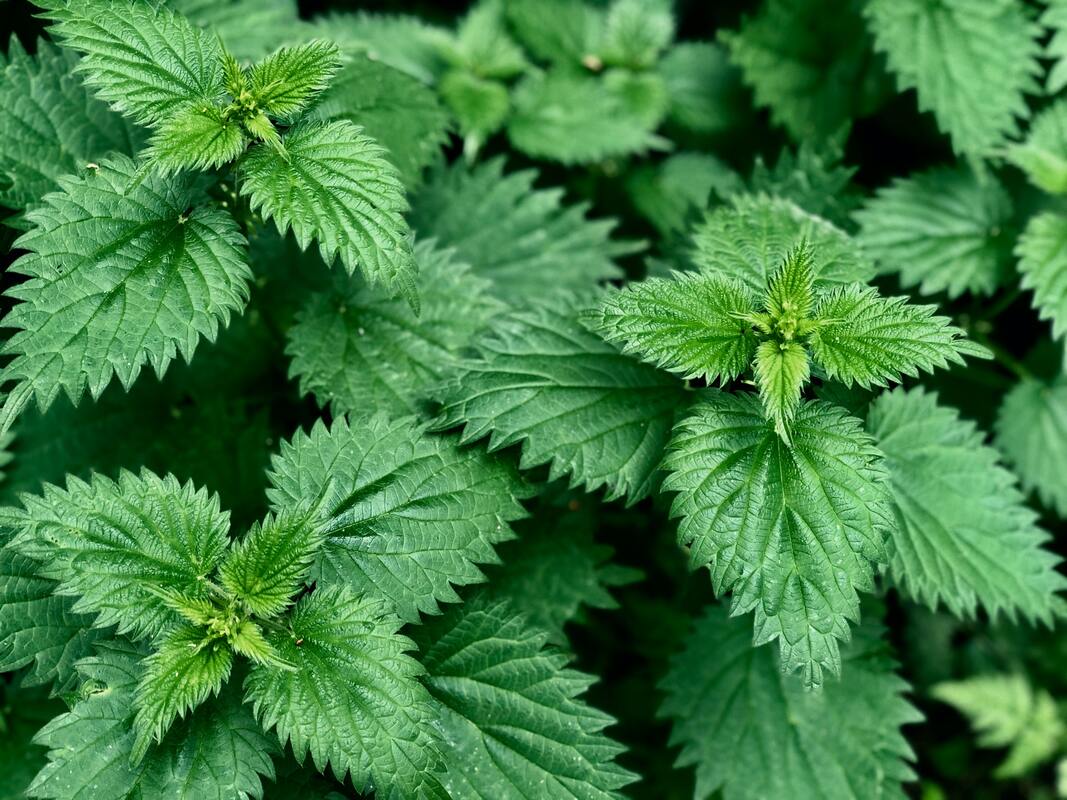
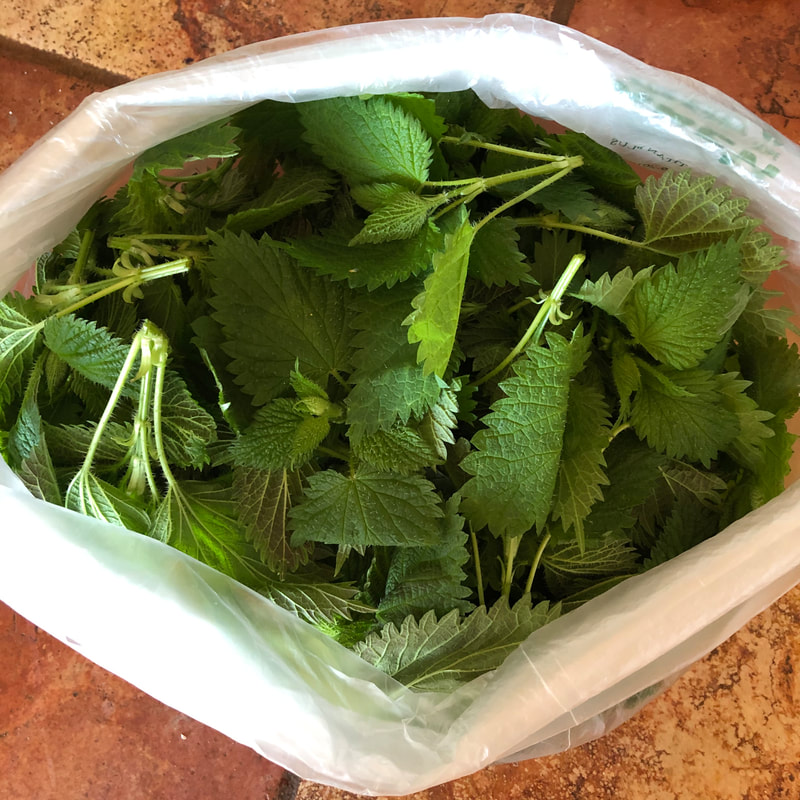
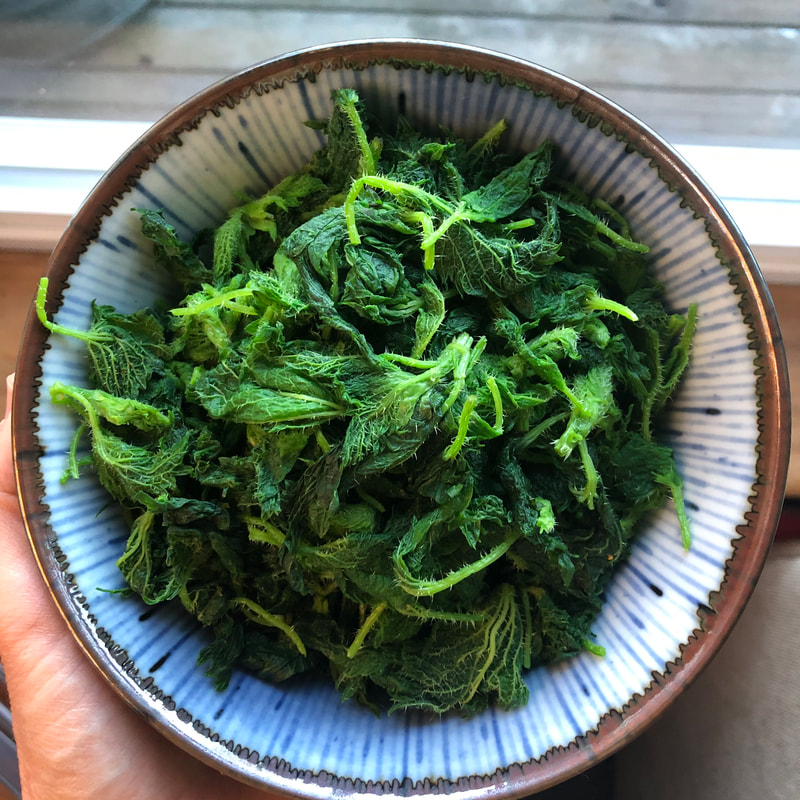
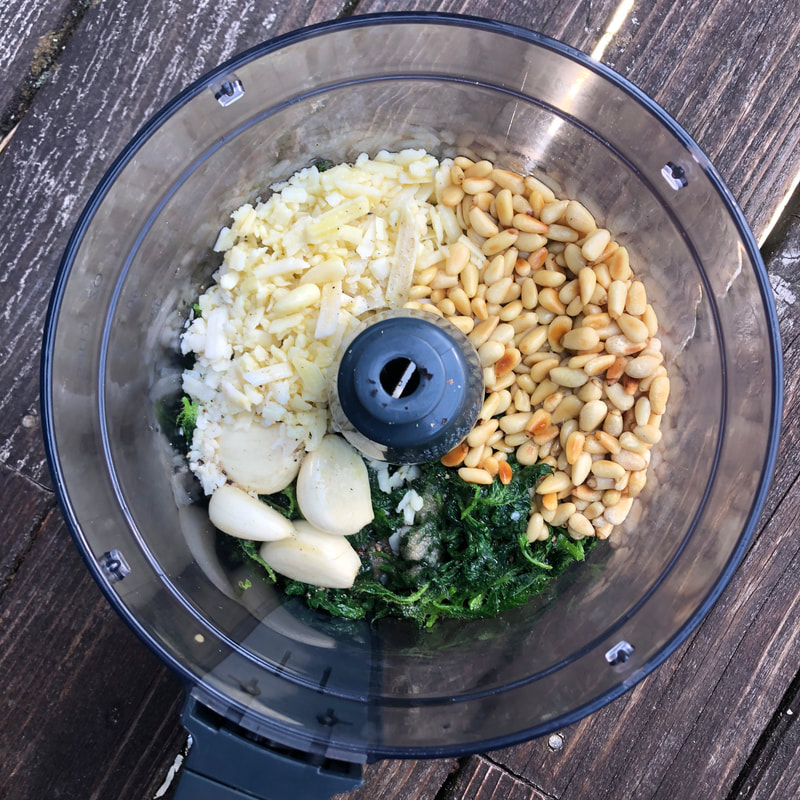
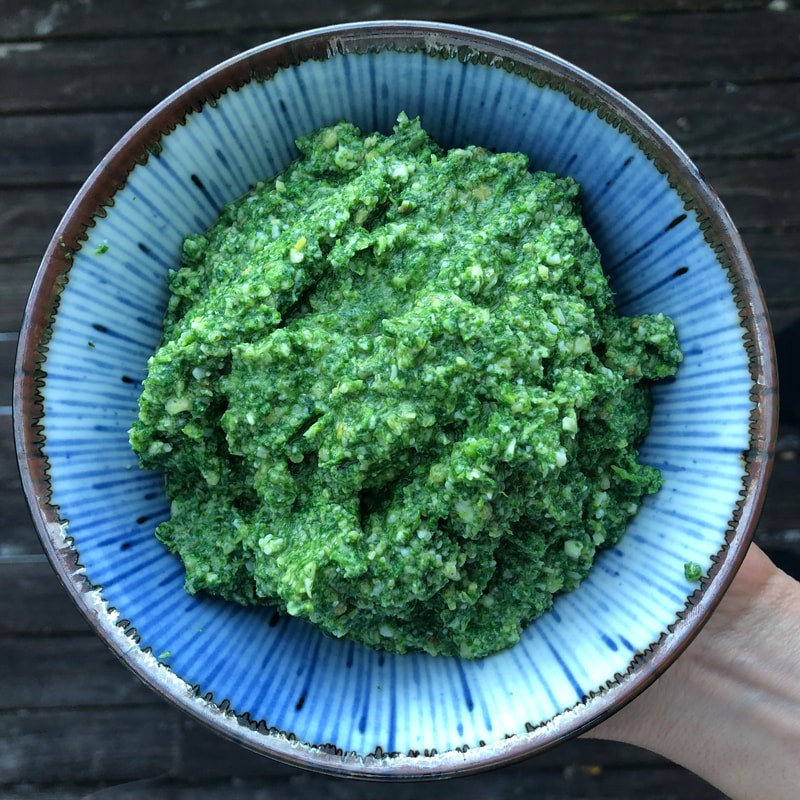
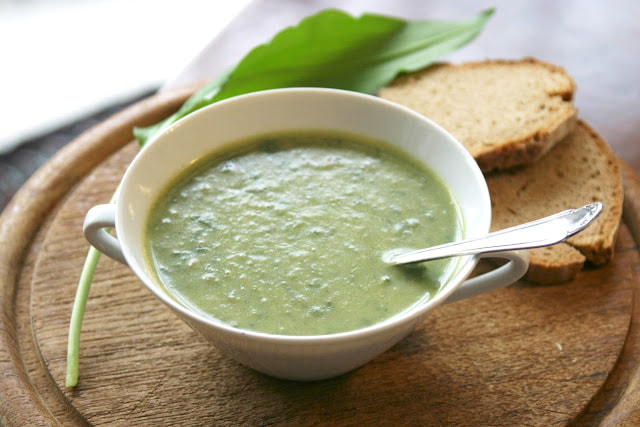
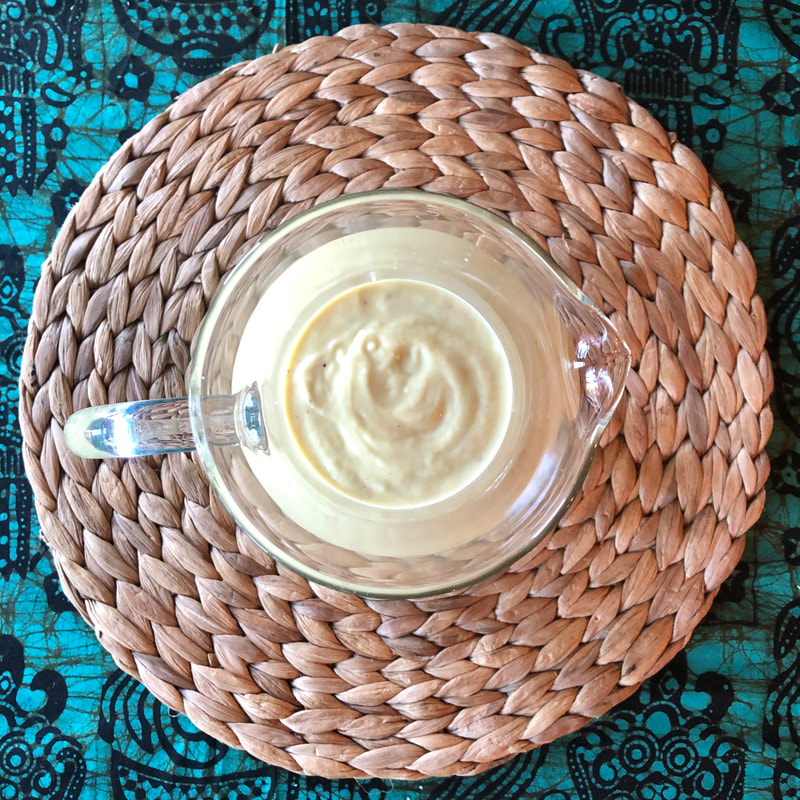
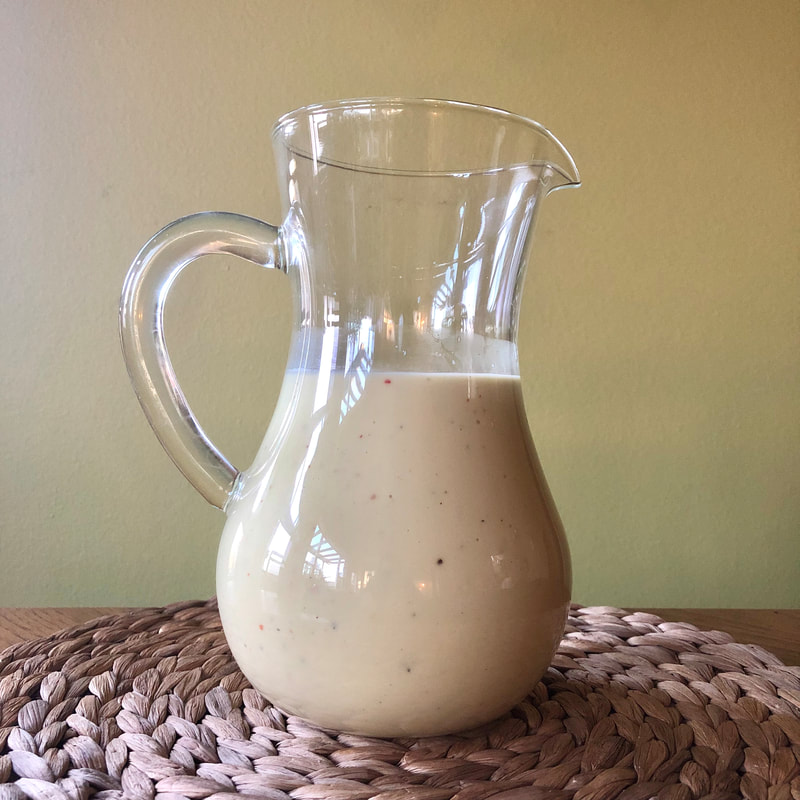
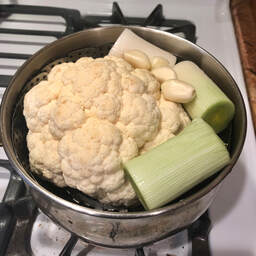
 RSS Feed
RSS Feed

